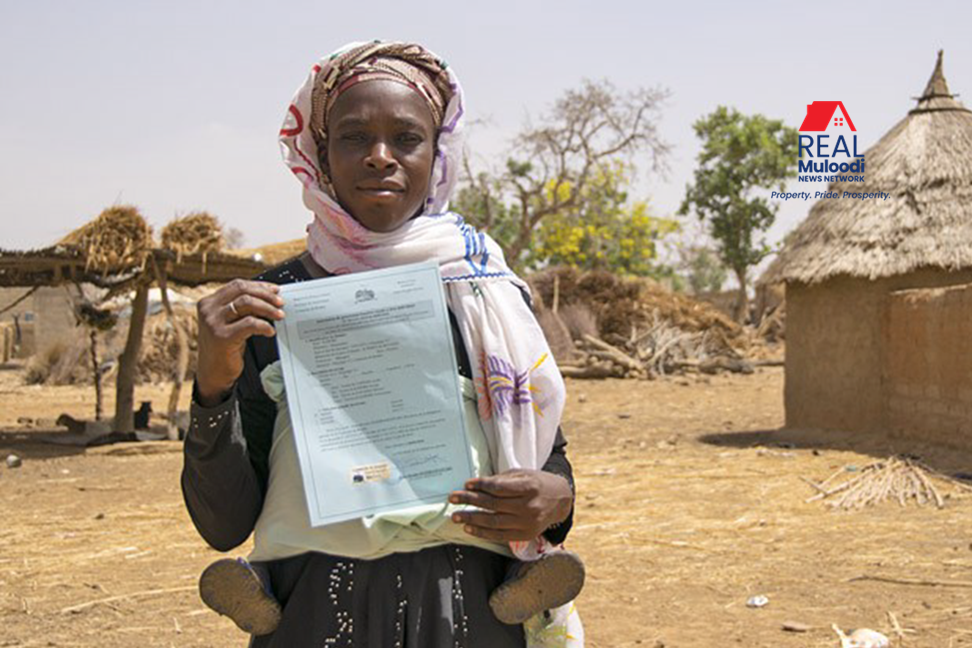UGANDA, Kampala | Real Muloodi News | The land stands as the paramount asset within any community, including our own. It’s imperative to safeguard our land to ensure our communities reap its benefits despite the challenges.
A significant issue facing communities is land mismanagement and exploitation. For instance, in 2010, a family sold 15 acres of prime land near Gulu City to a church missionary organisation for about USh100 million.
The intention was to establish a thriving business, but the only acquisition was a second-hand maize grinding machine.
The family now finds itself in a financially precarious situation. Similarly, a friend bought land where an elderly man, the original owner, had sold off portions of his land.
The man, abandoned by his wife due to financial mismanagement and alcohol consumption, now lives in a hut on what was once his extensive property.
These cases reflect broader land challenges in Uganda. Many residents in trading areas, such as those along the roads from Gulu to Kitgum or Nimule, have been exploited through land transactions or sold their land and now lack property despite receiving significant sums of money.
Customary Land Tenure and Conflict
Recently, a contentious situation involving the Balaalo pastoralist group and various communities in Acholi land has garnered attention.
The contested land falls under customary land tenure, traditionally managed by families, clans, or communities.
Despite presidential orders, the issue persists, affecting community cohesion and cultural identity. This matter highlights the broader discussion on social cohesion, cultural heritage, and the intrinsic importance of land to indigenous groups.
Government stakeholders often prioritise urbanisation, inclusivity, development, and investment opportunities, yet efficient land management practices are essential to address these challenges.
Transparent land governance systems, along with planners and advocates, are necessary to empower communities to govern their land effectively.
Effective Strategies for Land Management
Namati, an organisation based in Kenya, has implemented effective strategies for safeguarding communal land.
Their approach involves engaging various segments of the community—youth, women, men, seasonal users, and renters—in understanding the significance of the land. This initial step enables communities to make informed and responsible decisions about their land.
Raising awareness about the significance and value of land, and engaging the community in all land-related decisions, ensures the protection of both communal and individual land rights.
Including women and youth in decision-making processes at both family and community levels benefits the entire community in the long run. These are initiatives that our government should lead to foster community development.
Land in Uganda
Buying land in Uganda requires due diligence to avoid land fraud. Experts and the government cite a lack of due diligence as the leading cause of land fraud.
The following steps outline the process of buying land in Uganda, covering various land tenure systems:
Mailo Land System
Introduced in the 1900 Buganda Agreement, the Mailo Land tenure system involves land given to the Kabaka and other royals.
The land is managed separately by the Buganda Land Board (BLB) for the Kabaka’s portions and private owners for their portions.
To buy a piece of Kabaka’s land, one must understand its ownership and get the consent of the BLB. If buying private Mailo land, the buyer should ensure the seller provides proof of ownership and collaborates with area leadership and neighbours.
Freehold Land System
The Freehold Land tenure allows owners to hold the registered land forever and do whatever they want. This system is commonly used in Eastern, Western, and some parts of Central and Northern Uganda.
Acquiring land in this tenure system involves visiting the land, conducting a background check, hiring a lawyer, and concluding the transaction.
Customary Land System
Customary Land Tenure is based on customary rules formed from the norms and cultures of families, clans, or communities.
Land holding is majorly practised in Eastern and Northern Uganda. Buying land in such settings is difficult because different communities have varying customs, norms, and practices.
It is essential to understand these customs and ensure they are not discriminatory against women, children, and persons with disabilities.
Leasehold Land System
The Leasehold Land tenure involves holding land for a specified period under agreed terms and conditions. One can get a lease from an individual, local authority, organisation, company, institution like the Buganda Kingdom, or the government. The leaseholder must follow specific procedures to acquire and manage the leasehold land.
How to Acquire Leasehold Land Title
Step 1: Complete necessary forms, obtain deed plans, passport photographs, payment receipts, and a forwarding letter signed by the District Land Officer.
Step 2: Present documents to the Department of Land Administration for checking.
Step 3: If approved, forward documents to the Department of Land Registration for preparation and issuance of Lease agreements.
Step 4: Present signed and sealed lease documents to URA for stamping.
Step 5: Collect the Leasehold Title with identification documents.
General Procedure for Buying Land
Site Visiting: Visit the location of the land before committing to anything. If the buyer lives outside the country, appoint a family member to visit with a lawyer.
Getting a Lawyer: Hire a lawyer knowledgeable about land issues to assist in the process.
Land Search: Conduct a land search with the Lands Ministry to verify the seller’s authenticity. Ensure the land does not have any encumbrances.
Boundary Opening: Use a professional surveyor to open the boundaries of the land.
Negotiations: Negotiate prices directly with the seller.
Writing the Agreements: The buyer’s lawyer should prepare the sales agreement, which is then presented to the seller’s lawyer.
Stamp Duty Payment: Pay a Stamp Duty Tax of 1.5% of the total value of the sale for transactions exceeding Shs10 million.
Registration of Transfer: Complete the transfer process by providing necessary documents, including the original title deed, stamp duty assessment forms and receipt, transfer documents, and clearance certificates.
By understanding these processes and engaging in responsible land management, communities can navigate land challenges effectively and ensure their prosperity.
READ MORE LIKE THIS:



